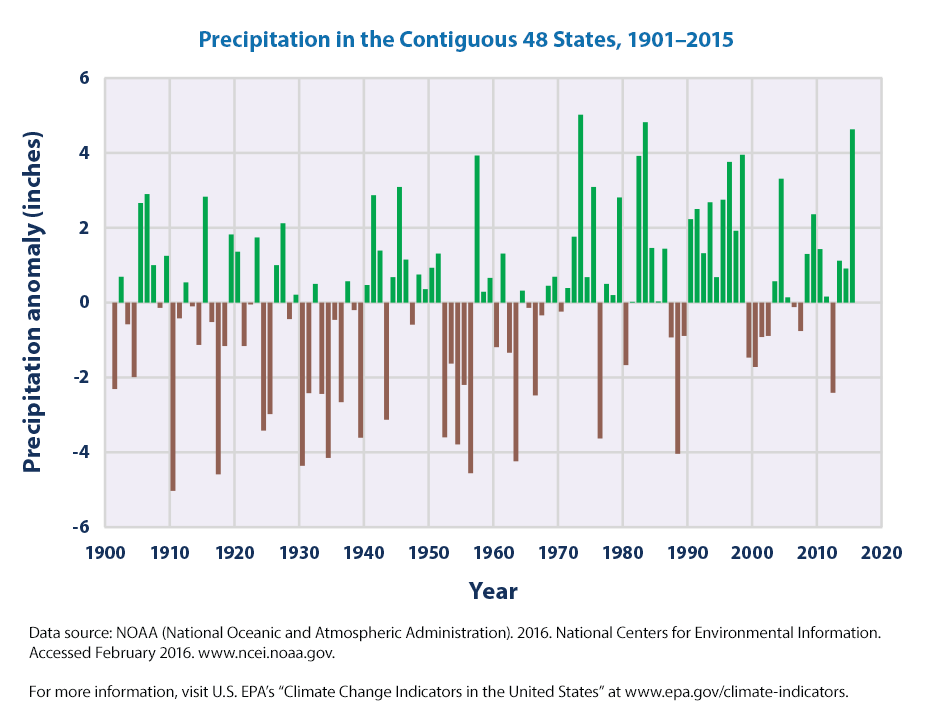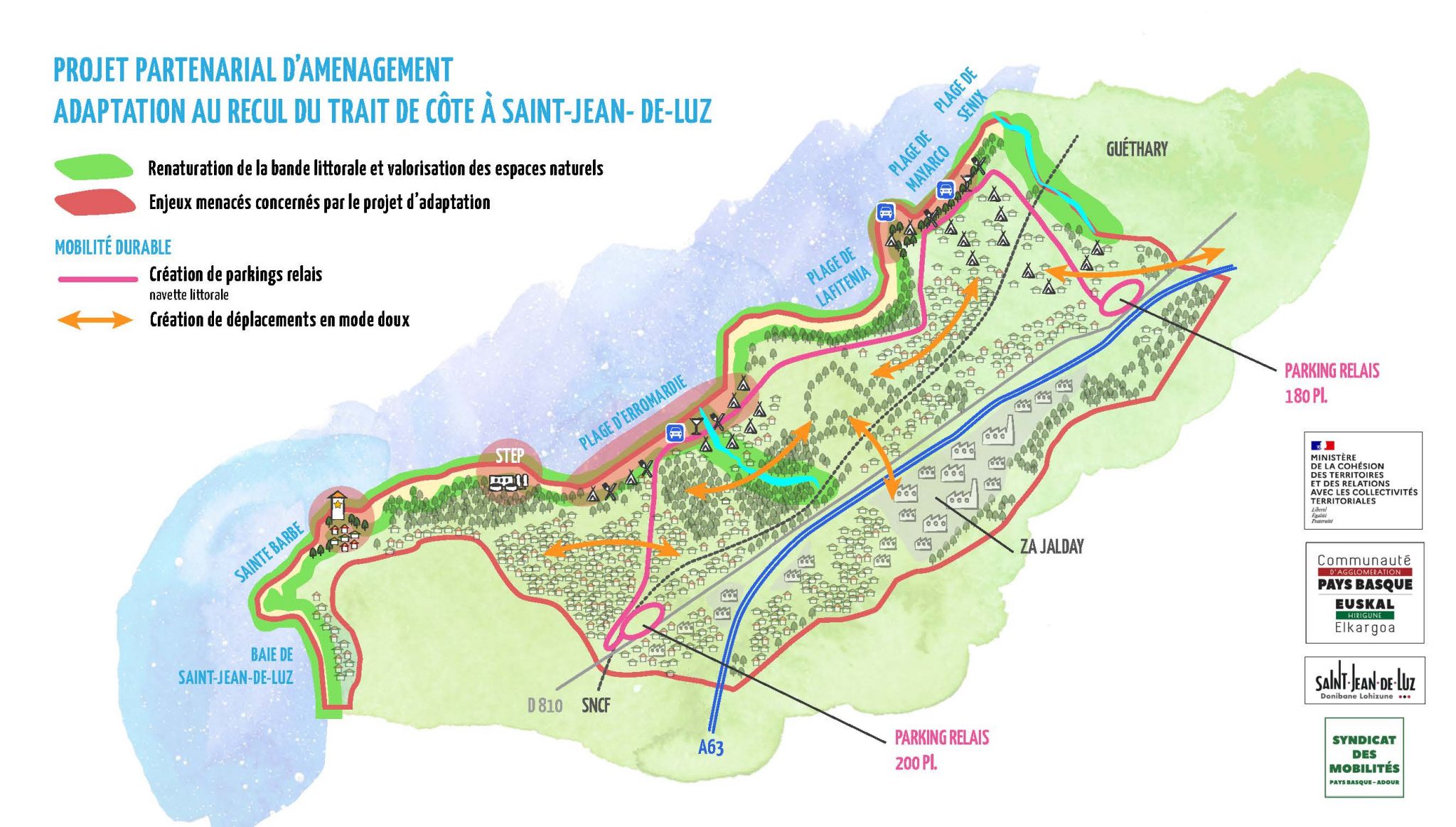Climate Change Impacts On Precipitation: The Case Of Western Massachusetts

Table of Contents
Increased Frequency and Intensity of Extreme Precipitation Events
Climate change is intensifying the water cycle, leading to more frequent and intense periods of heavy rainfall. Warmer temperatures increase atmospheric moisture, resulting in heavier downpours when precipitation does occur. Data from the National Oceanic and Atmospheric Administration (NOAA) shows a marked increase in extreme precipitation events in Western Massachusetts over the past several decades. This trend is expected to continue and even worsen in the coming years.
- Increased risk of flooding and flash floods: Heavier rainfall overwhelms drainage systems, leading to increased flooding and flash flood events, particularly in low-lying areas and along rivers.
- Damage to infrastructure: Flooding and extreme precipitation damage roads, bridges, homes, and other crucial infrastructure, resulting in costly repairs and disruptions to daily life.
- Soil erosion and damage to agricultural lands: Intense rainfall leads to significant soil erosion, damaging agricultural lands and reducing crop yields. This impacts the local agricultural economy and food security.
Changes in Seasonal Precipitation Patterns
Climate change is not only increasing the intensity of rainfall but also altering its seasonal distribution. Western Massachusetts is experiencing shifts in the timing and amount of rainfall throughout the year. This impacts water resources significantly:
- Potential for increased droughts during drier seasons: Changes in precipitation patterns can lead to longer and more severe droughts during typically drier periods, impacting water supplies for both human use and ecosystems.
- Increased strain on water resources during periods of high demand: Periods of intense rainfall followed by extended dry spells create challenges in managing water resources effectively, placing a strain on water supplies during periods of high demand, like summer.
- Impact on agriculture and ecosystems: Altered seasonal rainfall patterns disrupt agricultural practices and impact the health of local ecosystems, affecting the timing of plant growth and animal life cycles. Data from the USGS demonstrates a clear trend of shifting seasonal rainfall patterns within Western Massachusetts.
Impact on Local Ecosystems and Biodiversity
Altered precipitation patterns have profound effects on Western Massachusetts's diverse ecosystems and their inhabitants. Changes in rainfall directly impact the health and distribution of flora and fauna.
- Impact on specific species or ecosystems: Changes in rainfall affect forests, wetlands, and other ecosystems, impacting the species that rely on these environments. For example, changes in snowpack can impact the survival of certain wildlife species.
- Potential shifts in plant and animal distribution: As conditions change, plant and animal species may shift their ranges, leading to potential conflicts and disruptions to the established ecosystem balance.
- Interconnectedness of precipitation changes and other climate change impacts: The impact of altered precipitation is intertwined with other climate change effects, such as increased temperatures and changes in air quality, exacerbating the overall stress on local ecosystems.
Socioeconomic Impacts of Altered Precipitation
The consequences of altered precipitation patterns extend beyond environmental concerns, significantly impacting the socioeconomic landscape of Western Massachusetts.
- Economic consequences of extreme weather events and altered water resources: Extreme weather events cause significant economic damage through infrastructure repair costs, business interruptions, and agricultural losses. Water scarcity also impacts industries reliant on readily available water.
- Impact on agriculture, tourism, and infrastructure: The agricultural sector is directly vulnerable to changes in rainfall, while the tourism industry can be impacted by extreme weather events. Furthermore, infrastructure damage from extreme precipitation results in significant economic burdens.
- Potential public health impacts: Changes in water availability and quality can increase the risk of waterborne diseases, particularly in areas experiencing increased flooding. Extreme heat associated with drought can also worsen public health outcomes. Proactive climate change adaptation strategies are crucial to mitigate these risks.
Understanding and Addressing Climate Change Impacts on Precipitation in Western Massachusetts
Climate change is significantly altering precipitation patterns in Western Massachusetts, leading to more frequent extreme weather events, changes in seasonal rainfall, and negative impacts on ecosystems and the economy. These consequences demand immediate attention. The increased frequency of flash floods, droughts, and their cascading effects on infrastructure, agriculture, and public health highlight the urgent need for action.
To address these challenges, we must:
- Support climate-friendly policies at the local, state, and national levels.
- Reduce our individual carbon footprints through sustainable practices.
- Get involved in local environmental initiatives and conservation efforts.
Understanding the impacts of climate change on precipitation in Western Massachusetts is crucial for developing effective strategies for adaptation and mitigation. Let's work together to protect our communities and environment from the devastating effects of climate change.

Featured Posts
-
 Zverevs Indian Wells Run Ends Griekspoor Upsets Top Seed In Second Round
May 31, 2025
Zverevs Indian Wells Run Ends Griekspoor Upsets Top Seed In Second Round
May 31, 2025 -
 Como Preparar Una Brascada Guia Paso A Paso Para El Bocadillo Valenciano Perfecto
May 31, 2025
Como Preparar Una Brascada Guia Paso A Paso Para El Bocadillo Valenciano Perfecto
May 31, 2025 -
 Saint Jean De Luz Face Au Recul Du Trait De Cote Adaptation Et Defis Pour La Preservation Du Littoral
May 31, 2025
Saint Jean De Luz Face Au Recul Du Trait De Cote Adaptation Et Defis Pour La Preservation Du Littoral
May 31, 2025 -
 2024 Estevan Road Sweeping Schedule Know Your Dates
May 31, 2025
2024 Estevan Road Sweeping Schedule Know Your Dates
May 31, 2025 -
 Le Cas Sanofi Sous Evaluation Ou Realite Du Marche Pharmaceutique Europeen
May 31, 2025
Le Cas Sanofi Sous Evaluation Ou Realite Du Marche Pharmaceutique Europeen
May 31, 2025
